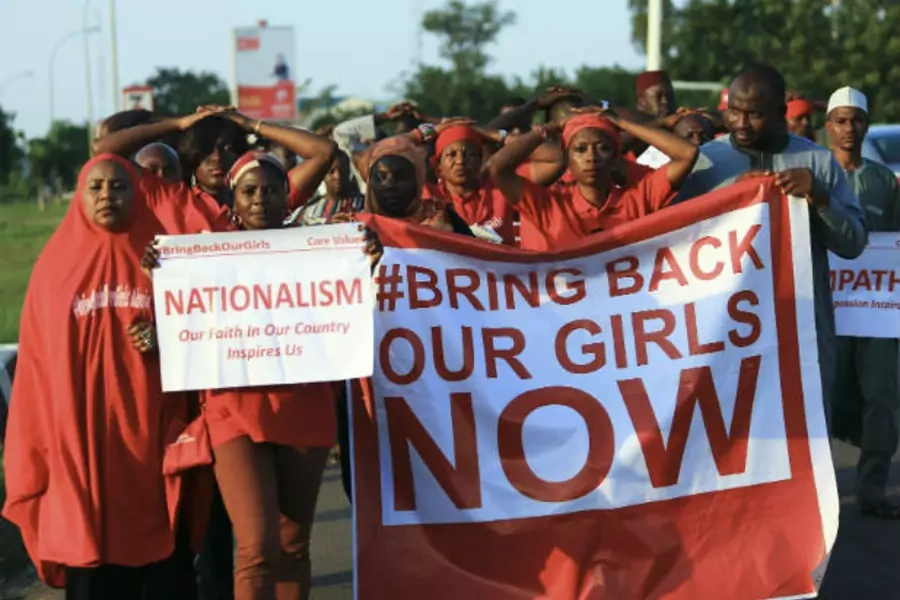Women Around the World: This Week

More on:
Welcome to “Women Around the World: This Week,” a series that highlights noteworthy news related to women and U.S. foreign policy. This week’s post, covering April 7 to April 15, was compiled with support from Anne Connell and Alexandra Eterno.
Two-year anniversary of abducted Nigerian schoolgirls This week marks the two-year anniversary of the abduction of 276 schoolgirls by Boko Haram militants in the Nigerian town of Chibok, raising serious concerns about the efficacy of government and international efforts to rescue these girls. A video—thought to be filmed late last year—showing a number of the 219 girls still missing was released yesterday to the media and the girls’ families, many of whom were active in the #bringbackourgirls campaign that galvanized international support in 2014. The vast majority of the Chibok girls remain in captivity and subject to human rights abuses, including sexual assault and forced marriage. Some also have been trained and deployed by the Islamic insurgents as suicide bombers across northeast Nigeria and in neighboring countries: a recent UNICEF report reveals that Boko Haram now uses girls to carry out more than three quarters of its suicide attacks. Those girls who have managed to escape captivity reportedly face social exclusion and stigma upon return to their communities. Since Boko Haram began its vicious campaign to overthrow the government and create an Islamic state in the northeast, over 2.3 million people have fled their homes and more than 1 million children have been forced out of school.
Keiko Fujimori wins elections in Peru Keiko Fujimori, the daughter of controversial former President Alberto Fujimori, won the first round of Peru’s presidential elections on Sunday and is set to face a run-off in June with former World Bank economist Pedro Kuczynski; if she wins, she will become Peru’s first female head of state. The second-round election looks to be a tight race, but may be affected by scrutiny of Kuczynski for his role in a business deal revealed by the Panama Papers. Fujimori has come under criticism because of her failure to distance herself from the human rights abuses and corruption of her father’s right-wing populist rule of Peru in the 1990s, during which time he led a brutal government crackdown on the Shining Path guerrilla group. A number of women’s rights organizations are protesting the younger Fujimori’s bid for the presidency due to her comments that have downplayed or denied this legacy of abuse, including the sterilization of thousands of women in a highly-criticized state-run population control program. Fujimori, if elected, promises to extend free-market policies, promote economic growth in Peru’s isolated rural areas, and combat terrorism.
Unequal pay for women Equal Pay Day, held on April 12 each year, highlights the persistent gender wage gap in the U.S.—a gap that exists in both developing and developed economies around the world. The global pay gap is driven by a number of factors: nearly 90 percent of 173 studied economies in 2015 have at least one law on the books that restricts women’s economic opportunities. Legal barriers to women’s work are compounded by the gender gap in secondary education, traditional gender norms that inhibit women’s ability to work, unequal access to health services, and violence against women—particularly among the world’s poor, rural, and marginalized women. The concentration of women in low-wage work is another critical driver of the gender gap in economies around the world: women vastly outnumber men in positions that are informal, vulnerable, low-paid, or market-undervalued—work that is also often unprotected by labor legislation. The burden of domestic work and small-scale farming, in particular, is borne by women, who comprise 43 percent of the agricultural labor force in developing countries and are often unpaid for their labor. According to a recent analysis from the McKinsey Global Institute, remedying these gaps and advancing women’s economic participation stands to add $12 trillion to global growth.
More on:
 Online Store
Online Store